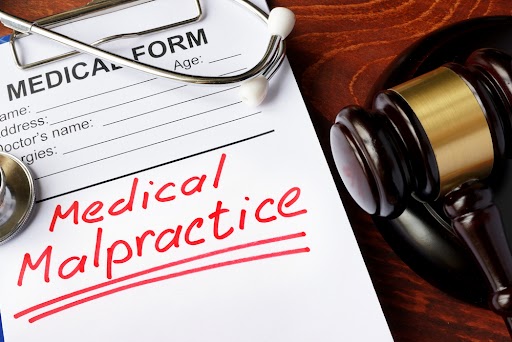Within the world of healthcare, the expectation of receiving quality medical care is paramount. However, there are instances when patients experience the devastating effects of medical malpractice, leaving them with worsened conditions or unforeseen complications. Whether you’re a healthcare practitioner aiming to enhance patient care or an individual navigating a medical malpractice case, this article will serve as a valuable resource.
Seeking legal representation in a medical malpractice case can be crucial in obtaining the justice and compensation you deserve. If you or a loved one has been affected by medical malpractice, we encourage you to consult with a reputable law firm like Lasky Justus Law. Our experienced team can provide the advocacy and guidance needed to navigate the complexities of a medical malpractice claim.
1. Misdiagnosis
Misdiagnosis is a common and serious form of medical malpractice resulting from factors such as insufficient medical knowledge, incomplete diagnostic testing, misinterpretation of test results, and inadequate communication among healthcare professionals. Addressing misdiagnosis requires improved medical education, ongoing professional development, and enhanced communication among healthcare providers.
Patients can play an active role in preventing misdiagnosis by seeking second opinions, asking questions, and fostering communication with healthcare providers. Proving misdiagnosis as medical malpractice requires demonstrating that the healthcare provider deviated from the standard of care, with expert testimony and medical records serving as crucial pieces of evidence.
2. Surgical Errors
Surgical errors can have severe consequences for patients. These errors may occur due to various factors, such as miscommunication among surgical team members, inadequate preoperative planning, or technical mistakes during the procedure. Wrong-site surgery, where the surgery is performed on the wrong body part or even the wrong patient, is a particularly alarming type of surgical error. Another type is the retention of foreign objects, such as surgical instruments or sponges, inside the patient’s body after surgery.
Surgical errors can result in serious complications, including infections, organ damage, or even death. To prevent surgical errors, healthcare providers must follow strict safety protocols, use checklists, and maintain effective communication and teamwork in the operating room.
3. Medication Errors
Medication errors occur when mistakes are made in the prescribing, dispensing, or administration of medications. These errors can lead to harmful consequences for patients, such as adverse drug reactions, incorrect dosages, or drug interactions. Common causes of medication errors include illegible prescriptions, incorrect calculations, confusion between similar drug names, or failure to consider a patient’s allergies or medical conditions.
To prevent medication errors, healthcare providers should use electronic prescribing systems, implement medication reconciliation processes, and improve communication among healthcare teams. Patients can also play a role in their safety by providing accurate information about their medications and asking questions if anything seems unclear or incorrect.
4. Birth Injuries
Birth injuries refer to harm caused to infants during the labor and delivery process. These injuries can be the result of various factors, such as the improper use of delivery instruments, delays in performing necessary medical interventions, or failure to monitor fetal distress. Birth injuries can lead to long-term physical, neurological, or developmental disabilities for the child. Examples of birth injuries include bruising, nerve damage, fractures, scalp swelling, or facial paralysis.
Healthcare providers can prevent birth injuries by closely monitoring the mother and baby during labor, promptly recognizing and addressing any signs of complications, and using appropriate interventions when necessary. Proper training, adherence to medical protocols, and effective communication among the healthcare team are crucial in ensuring safe deliveries and minimizing the risk of birth injuries.
5. Failure to Provide Informed Consent
Misdiagnosis and delayed diagnosis can have significant consequences for patients, leading to treatment delays or receiving the wrong treatment altogether. Factors contributing to misdiagnosis include inadequate medical history taking and misinterpretation of diagnostic tests.
Proper communication, thorough evaluation, and collaboration among healthcare professionals are essential to prevent misdiagnosis and reduce the potential harm to patients. Prompt and accurate diagnosis is crucial for providing appropriate and timely medical care.
CTA: Don’t hesitate to take action and protect your rights. Contact Lasky Justus Law today for a confidential consultation.
Steps to Take If You Suspect Medical Malpractice
1. Consult With a Medical Malpractice Attorney
A qualified medical malpractice attorney can evaluate your case and advise you on your legal options. They can help investigate and gather evidence to support your claim, negotiate settlements, and represent you in court if necessary.
2. Retrieve Medical Records
Request copies of your medical records from all healthcare providers involved in your treatment. The documentation can be used as evidence to support your case.
3. Document the Facts
Write down the details of the incident(s). Include the date, time, and location of the event, the names of any healthcare professionals involved, and what happened.
4. Obtain a Medical Opinion
Consult with another healthcare provider to obtain a second opinion on your diagnosis or treatment. They can provide an objective perspective on the quality of care you received.
5. File a Complaint
You can file a complaint with the relevant medical boards or regulatory authorities to ensure the responsible healthcare professionals are held accountable.
Contact Lasky Justus Law for Representation
Medical malpractice stands as an unfortunate reality, carrying the potential for profound and far-reaching consequences for patients and their families. By bringing to light the five most prominent types of medical malpractice cases, we aim to increase awareness and underscore the importance of seeking justice in the face of such instances.
If you or a loved one has experienced medical malpractice, reaching out to an esteemed law firm such as Lasky Justus Law can provide the necessary legal guidance and support throughout the complex legal proceedings. Do not allow medical malpractice to go unaddressed – take action, protect your rights, and ensure the pursuit of justice you rightfully deserve.






